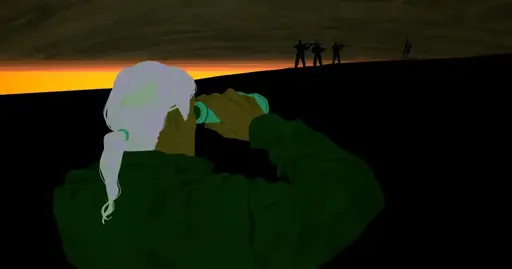He moved to Las Vegas and, at the age of 25, became an officer in the metro police. Kinch came to serve in elite detective units over 23 years in the force, hunting fugitives and helping take down gangs like the Playboy Bloods. Eventually he was assigned to what he called the “Black squad,” according to court records, tasked with investigating violent crimes where the suspect was African American. (A Las Vegas police spokesperson told me they stopped “dividing squads by a suspect’s race” a year before Kinch retired.)
“The Sheriff has become a personal friend who hosted my FBI interview,” Coates responded. “He opens a lot of doors.” Coates had been in D.C. on Jan. 6, he’d told Williams. It’d make sense if that had piqued the FBI’s interest.
To Williams, it hinted at a more menacing scenario — at secret ties between those who threaten the rule of the law and those duty-bound to enforce it. He desperately wanted more details, more context, the sheriff’s name. But he didn’t want to push for too much too fast.



Yes, that’s true. Except he was a cop in Las Vegas and the police department’s response about the “black squad.”
And this:
What. Thefuck.